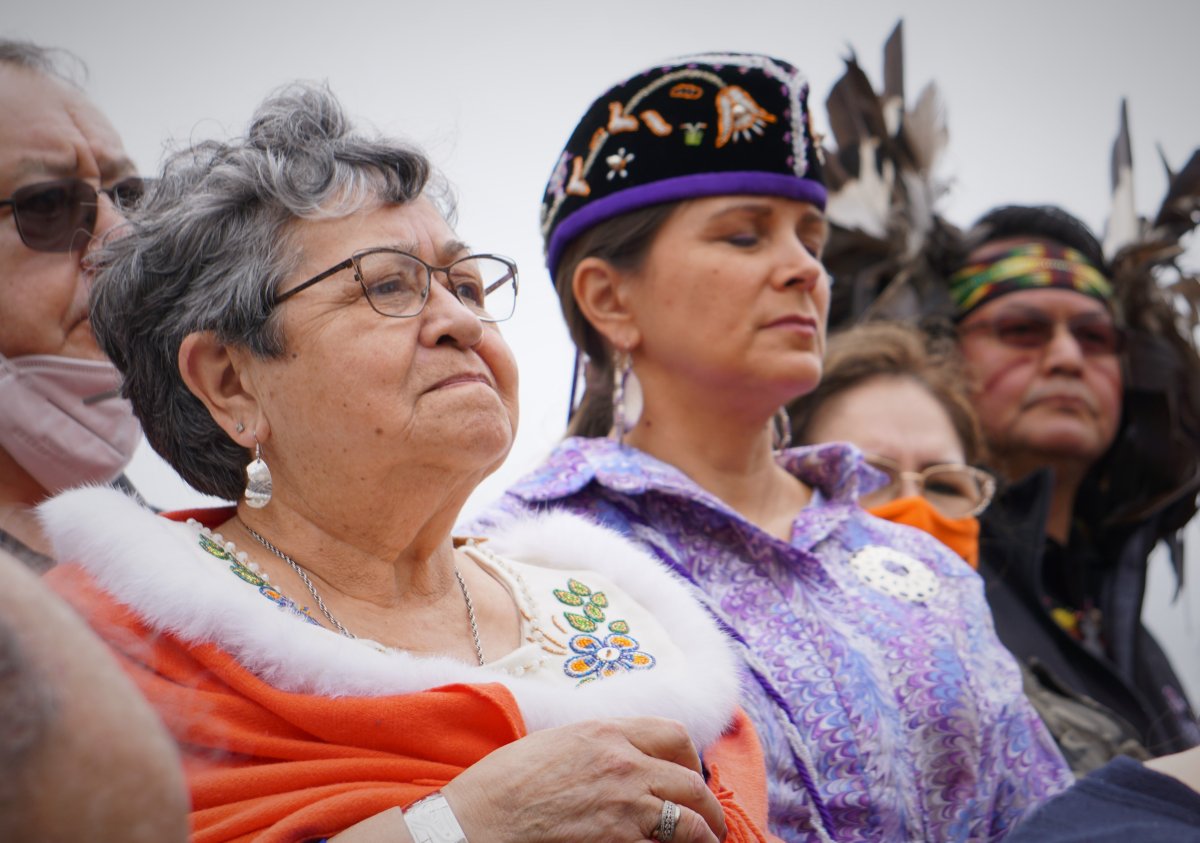First Nations, Métis and Inuit delegates wrapped up a historic delegation to Rome last week, receiving an unprecedented apology from Pope Francis related to residential schools.

Before nearly 200 people, the head of the Catholic Church asked for forgiveness for the pain and suffering caused by some members of the clergy in the institutions of assimilation, which operated between the 1830s and 1990s.
The pontiff said he was “deeply grieved” by the stories of “suffering, hardship, discrimination and various forms of abuse” he heard throughout the week. He extended a hand of friendship, promising to visit Canada and work together to bring an end to “colonial mentality.”
Opinions differ on whether Pope Francis’s words were sufficient or appropriate, given the number of requests from survivors that he did not address in his televised speech on April 1. There is little doubt, however, that the apology, the delegation and all it achieved will be written into the Canadian history books.
Between March 28 and April 1, Global News asked Indigenous delegates, their friends and family in Rome how they would like the events of the week to be recorded in those books, which may be read by children in school for generations to come.

Maya Fontaine
Phil Fontaine’s daughter
“I’d like the history books to reflect the tremendous amount of hard work and commitment that the delegates and the survivors have put forth over the years. I’d like to I’d like the history books to acknowledge all the people who couldn’t be here today — survivors. I have aunts and uncles, grandparents, that went to residential schools and this is really for them as well. I think it would have meant so much to be told, ‘We understand that this caused you great harm and we acknowledge it and we’re accountable.'”
Kúkpi7 Rosanne Casimir
British Columbia delegate, chief of Tk’emlúps te Secwépemc
“When I look at my grandchild and her grandchild, what they’ll be learning in the education books is the real history — the Canadian history, the First Nations history, the history of Tk’emlúps te Secwépemc and all First Nations who have had residential schools and poor Indian hospitals…. History has been made (this week). There were some steps that needed to be taken and were taken from the highest level.”
Adeline Webber
Yukon delegate, residential school survivor and member of Teslin Tlingit Nation
“The history books have to write the truth – the truth about the situation, the history of why residential schools were put in place. It was not to educate Indian children, it was to assimilate them into the white society and to actually get rid of the language, the history and that sort of thing. That’s what is really important for them to understand.”
Gary Gagnon
Métis delegate, cultural facilitator, vice-president for Region 4 of the Métis Nation of Alberta
“We came with our elders, we came with our survivors, we came with our leadership and Cassidy Caron, and we came with our open hearts. I just want Canada to know — or wherever this may be — that we’re telling our story and our stories are what connects us in this world. We need more positive stories.”
Phil Fontaine
Manitoba delegate, residential school survivor and member of Sagkeeng First Nation
“What emerges from this in terms of the stories to be told will be determined by our people and I’m certain much of it will be positive. Will it emerge as the perfect story? I don’t think so, there isn’t anything that’s perfect. There’s always a flaw that some people will find, but aside from that, this moment here is of critical importance to us, to our story, our place in Canada. And I’m convinced that we will emerge after this moment even stronger than we’ve become.”

Cindy Woodhouse
Assembly of First Nations regional chief for Manitoba
“I’m glad that moments like this are going to be captured, documented and, you know, translated into different languages, and that people will hear the stories of many of the knowledge keepers and residential school survivors that are here…. I just think that there’s so much to learn. I haven’t learned everything, but Canadian children and children around the world should read about what had happened before and that there was residential schools that hurt children, and that we changed from that.”
Katsitsionni Fox
Spiritual advisor from Akwesasne Mohawk territory
“Hopefully it gets written about because I’ve been an educator for over 20 years. I just left in June. One thing that I noticed in curriculum is that Indigenous people are almost invisible … what is written is written from another perspective, so I think it’s time now to flip that narrative and start telling our own stories and to start sharing things from multiple perspectives. I think the world is ready for that now. I’d like for people to know that we came to represent and that we came in honour of all those ones that couldn’t come here. I think you have to make a stand, you have to be the voice if you’re given that responsibility.”
The Indian Residential Schools Crisis Line (1-866-925-4419) is available 24 hours a day for anyone experiencing pain or distress as a result of their residential school experience.
- Premier Moe responds to Trudeau’s ‘good luck with that’ comment
- Drumheller hoping to break record for ‘largest gathering of people dressed as dinosaurs’
- As Canada’s tax deadline nears, what happens if you don’t file your return?
- Planning a summer trip to Quebec’s Îles-de-la-Madeleine? You’ll have to pay up










Comments